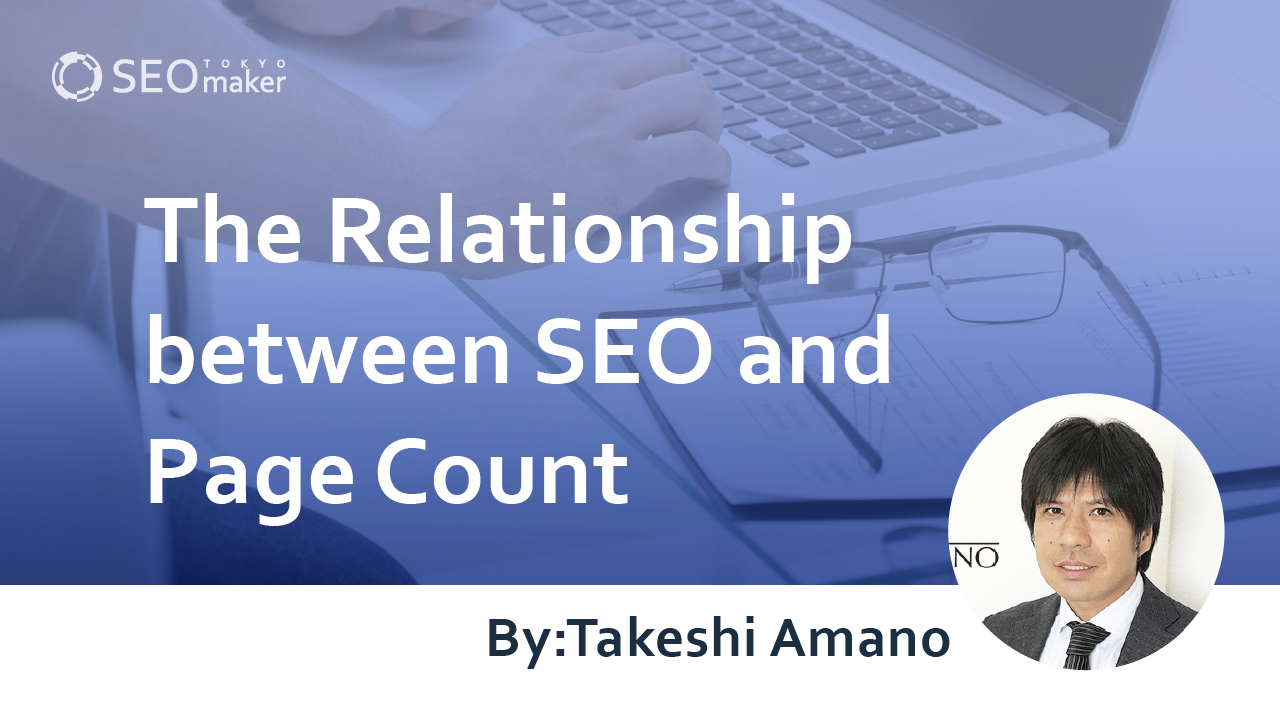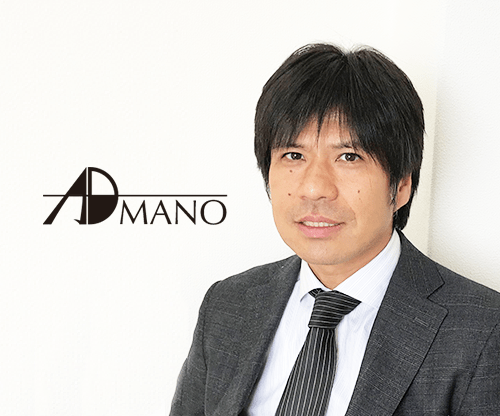The Relationship between SEO and Page Count: Differences in Indexed Pages and Key Points to Note
contents

When it comes to SEO, a common question is how many pages are needed. There is no specific number to aim for as it varies greatly depending on the targeted keywords. However, when considering SEO strategies, it is essential to focus on the number of indexed pages.
How Many Indexed Pages Are Needed? Are More Indexed Pages Better for SEO? Tokyo SEO Maker Explains.
The Relationship Between Search Rankings and Page Count
It is often said that having more pages strengthens SEO. While there is some truth to this, it is not entirely accurate.
Google also emphasizes the importance of quality over quantity. While it is difficult for sites with fewer pages to achieve high ratings, it’s not necessarily true that having more pages always results in stronger SEO.
[Side story]
Recently, a client asked whether it is better to increase the number of pages or to increase the word count on existing pages. Observing the current algorithm, the trend seems to be less focused on having more words or more pages. Instead, the key is to have content that is relevant to the keywords . Simply increasing a page’s word count from 5000 to 50000 words does not necessarily improve its ranking. Moreover, increasing the number of pages with low-quality content may result in those pages being excluded from the index by Google’s crawler .
More Pages = More Target Keywords
Having more pages means having more target keywords. For websites mindful of SEO, each piece of content should be optimized for one specific keyword. Increasing the number of target keywords significantly impacts traffic. However, simply adding low-quality pages will not get them indexed by Google’s crawler nowadays. Focus on increasing pages with valuable content that genuinely benefits users.
Aim for Long-tail Keywords
When designing a website, even if your ultimate goal is to target major keywords, it’s essential to strategize with small and mid-range keywords. Major keywords often have ambiguous meanings, making it easier to reflect user needs in long-tail keywords. Starting with small keywords for initial traffic may be necessary, but content that delves into user needs will continue to have an impact in the long run.
More Pages = Stronger SEO
As mentioned earlier, having more pages does make your SEO stronger. However, it is crucial to emphasize that it’s not just about the sheer number of pages, but rather the number of pages indexed by search engines. This is because search engines might choose not to index pages if they perceive quality issues. So, once again, the focus should be on increasing the number of high-quality content pages
Success in Attracting Traffic with More Pages
The graph above illustrates the relationship between our client’s cumulative page count and the number of users. The left axis represents the number of users, while the right axis represents the page count. The data spans from June 2020 when the site was launched to April 2021.
As you can see, there was minimal traffic in the first six months after the site’s launch. However, user engagement gradually increased thereafter, and between April and May, there was a significant improvement in search engine evaluation, resulting in a substantial boost in search rankings.
While the monthly search volume in this genre is considerable at 1.2 million, we did not target major keywords but focused on mid-range and small keywords to attract traffic. This strategic approach contributed to our growth.
Although there was a period of low engagement before the site’s evaluation began and a subsequent increase in traffic due to improved search rankings, it’s evident that as the number of pages increased, so did the user base.
[Side sroty]
Duration and Page Count Required for SEO
In this case, we solely focused on content distribution without engaging in social media promotion, as per the client’s preference. Considering the scale of competition, battling with major keywords was not deemed advantageous. Instead, we achieved success by selecting keywords strategically and outsourcing content creation.
While approximately 270 articles were published in a year, it is unclear if all of them were necessary, as it largely depends on the genre.
Confirmation Method for Index Count and Page Count
Indexed pages refer to those within a site that appear in search engine results. While it is easy to determine your own page count as an administrator, assessing the page count of competitor sites can be challenging. However, there are methods to examine the indexed pages of competitor sites.
site:https://sample.com
Using ‘site:’ before a URL is one way to search, but tools like SEO Checki can also provide you with the indexed count by Google.
Guidelines for the Necessary Page Count
Determining the required number of pages when creating a sitemap can be tricky. It varies depending on the targeted keywords, making it challenging to specify an exact number.
One rough guideline is the indexed count of the top 10 pages when searching for major keywords. However, even if the top results have a sufficient count, it does not necessarily mean it is the required count.
This is indeed a challenging issue. For major keywords, sometimes 20 indexed pages might suffice, while in other cases, several hundred to thousands of pages might be necessary.
Points to Consider When Increasing Page Count
Increasing pages does not automatically make your SEO stronger. Content creation requires time, effort, and cost. While there are numerous preparations such as creating a sitemap, allocating a budget, and setting a roadmap, when it comes to mass production, please pay attention to the following.
Points to Note When Adding Page Content
Here are four points to consider when adding page content
- Create high-quality content.
- Avoid duplicate content.
- Create related content.
- Prioritize user-centric content.
Creating High-Quality Content
Simply increasing the number of pages on your site is not enough. In fact, it might negatively impact your site’s evaluation if the content quality is low and leads to non-indexing or poor site evaluation due to low-quality content.
Furthermore, being indexed doesn’t guarantee a top search ranking. While the definition of high-quality content varies by genre, in general, SEO writing requires articles to be both specialized and comprehensive.
In other words, you need articles that cover the subject thoroughly from the perspective of an expert in the field, meeting the MECE (Mutually Exclusive, Collectively Exhaustive) criteria.
To achieve this, analyze competitor articles and ensure your content is more specialized and comprehensive. Merely referencing competitor sites might not be enough to ensure thoroughness, and without a Unique Selling Proposition (USP), your content might lack uniqueness.
Additionally, providing proposals or information that cater to latent user needs can further enhance the quality of your content.
Avoid Creating Duplicate Content
One common mistake when aiming to increase page count is the practice of using tools like Rakko keywords to list keywords in order of search volume, and then attempting to create articles for all of them. While this might seem like an excellent method for producing a large amount of content related to keywords, I would not recommend it.
After publishing content, you might notice through tools like Google Search Console that one piece of content can target multiple keywords. Even seemingly unrelated words might rank higher if search engines deem them relevant.
This often happens because the initial keyword research might not have been thorough enough. While it’s challenging to investigate and make judgments at the initial stages, it’s essential to consider if existing pages can address the need or if rewriting is possible before adding new pages.
Failure to take such measures and increasing content without a strategy might inadvertently lead to duplicate content or cause dispersion of evaluation, even if the intention was to target different keywords.
It is crucial to emphasize Google’s advocacy for quality over quantity. Simply creating a page for each keyword will not necessarily be an effective strategy.
Creating Related Content
After determining the major keywords, it is easy to research related phrases. While these phrases become target keywords, it is crucial to prepare related keywords from a different perspective.
For example, the keyword ‘SEO’ is related to terms like Google Analytics, Search Engine Marketing (SEM), Content Marketing, and MEO (a common misspelling). Although these terms do not include ‘SEO,’ they are deeply related or often compared. By producing pages on such topics, your site can be perceived as highly relevant to the main keyword, thus increasing its ranking.
Creating content should not be limited to directly related or major keywords. It is essential to consider what is important to users.
Putting Users First
Ultimately, consolidating articles into fewer pages and enhancing quality may improve usability. In such cases, it is necessary to reduce quantity and focus on rewriting.
For users, what matters is not the number of pages but how easily they can find articles, navigate to them, and whether the articles are of readable length.
Summary
Google prioritizes user experience, and recent updates suggest a shift towards evaluating sites based on usability. Even if your site currently ranks high in searches, there is no guarantee it will continue to do so in the future. Considering user experience when creating content and managing your site can also contribute to your Google strategy.
Top of Form










![What is a Description? Explaining the Meaning, Writing Style, and Changing Word Count – [2023 Edition]](https://www.switchitmaker2.com/en/wp-content/uploads/2024/09/what-is-description.webp)










